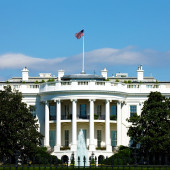Our website uses cookies so we can analyse our site usage and give you the best experience. Click "Accept" if you’re happy with this, or click "More" for information about cookies on our site, how to opt out, and how to disable cookies altogether.
We respect your Do Not Track preference.

On Wednesday 1 May, the International Association of Privacy Professionals (IAPP) hosted their Data Protection Authorities Day (DPA) at the White House.
The meeting involved White House staff, the Department of Commerce, Department of Justice, and the Federal Trade Commission, as well as academics and NGOs.
US Judicial Redress Act (JRA) and APEC Cross Border Privacy Rules (CBPR)
In July 2018, New Zealand applied for covered country status under the US Judicial Redress Act (JRA). The JRA authorises the US Attorney General to extend the protections of the US Privacy Act 1974 to the citizens of designated foreign countries (covered country status). While these rights were extended to European Union countries in 2016, to date no other country has been approved. The UK is currently in process of applying for covered country status and I was informed that new Zealand’s application had been well received.
The advantages of being recognised under the JRA do not offer a complete privacy-risk panacea. However, it would offer NZ ‘better than nothing’ privacy protection and set a minimum expected standard for privacy.
CBPR only briefly arose during my days of visits. Department of Commerce Acting Assistant Secretary for Services, Jim Sullivan, requested I update him on New Zealand’s position. I advised him that we had yet to hear much from New Zealand companies asking to be part of the system. Sullivan agreed that the uptake of companies, including those from the US, was slow.
Later, I had lunch was with the IAPP Board and invited delegates. It was fascinating to be seated next to Alistair MacTaggart, the architect and driving force behind California’s Consumer Privacy Act. The day concluded at a reception held at the Federal Trade Commission, hosted by Commissioner Noah Phillips.
Thursday 2 May – Friday 3 May
During my final few days in Washington, I attended the Global Privacy Summit. The summit explored the risk of defining personal data as an economic resource without the counterbalance of individual privacy rights.
Among the many fascinating breakout sessions on offer, which are too numerous to list, there were talks dealing with the impact that digital media and emerging tech is having on modern teenagers, sessions on the Internet of Things and how blockchain technology could transform the future of data privacy.

Global Privacy Summit keynote speaker, author Margaret Atwood.
On Friday, one of the keynote speakers, author Margaret Atwood, of Handmaid’s Tale fame, gave a terrific speech focused on the erosion of personal liberties in the pursuit of security. Anyone familiar with Atwood’s writing would expect a witty, erudite and insightful speaker. She did not disappoint.
Blog continued from Part 1 and Part 2
Back